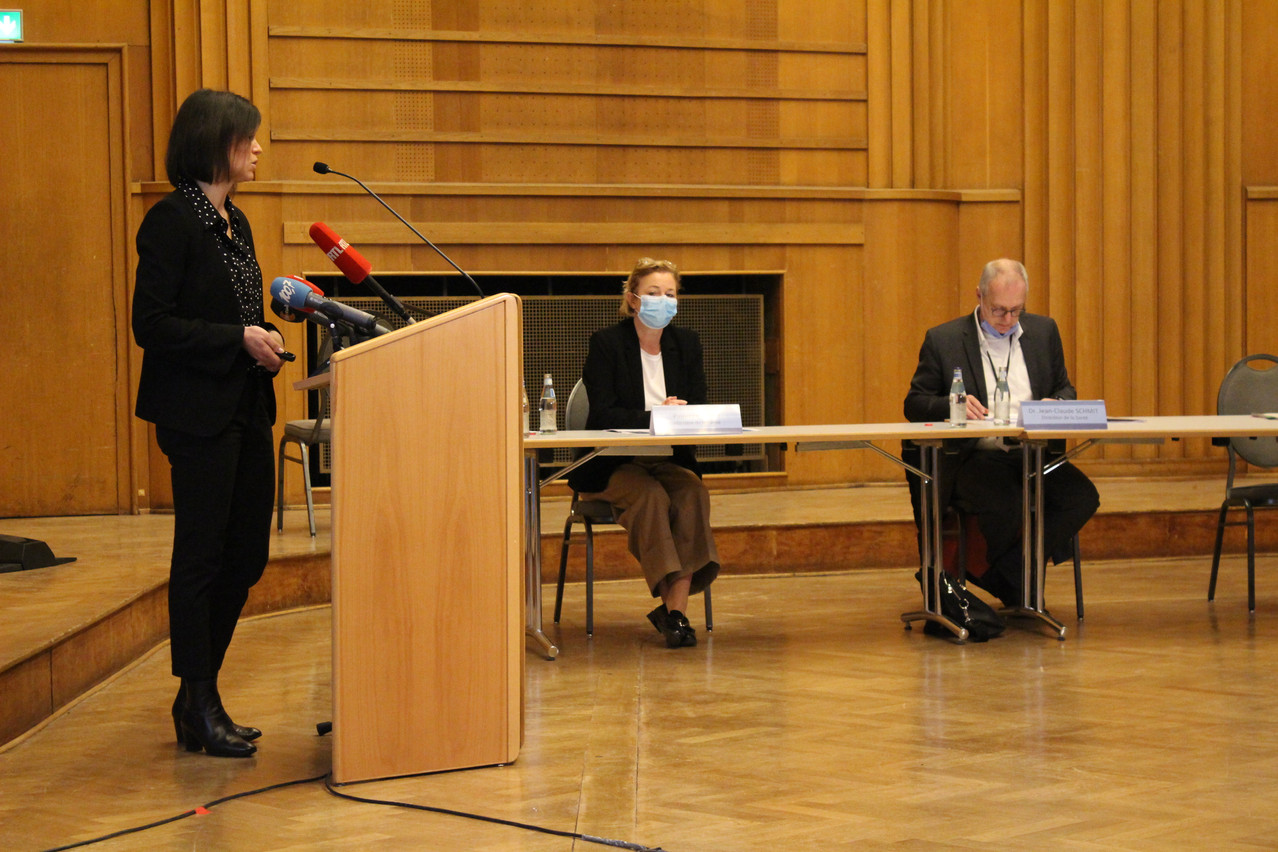Lenert seemed optimistic with regards to the vaccination campaign in the grand duchy so far. Whereas phase 1 started at the end of last year with the first healthcare professionals receiving the first of two jabs, the campaign continued in January with inoculations of hospital staff as well as those working and living in care homes across Luxembourg.
In the last group, turnout was relatively high with 86% of residents getting vaccinated but only around 50% of healthcare staff invited to the vaccination centre actually took up the invitation.
The second phase of vaccinations, which is expected to start at the beginning of March, once the first phase is completed, would see those aged 75 and over as well as the most vulnerable getting inoculated, whereby different categories of vulnerability will be taken into account. It will be up to general practitioners to determine under which category their patient falls.
In the third phase, those aged between 70 and 74 will receive the vaccine, in phase four those between 65 and 69 years old and in the fifth phase those between 55 and 64, each phase always starting with the oldest.
Finally, phase 6 will see all those between 16 and 54 getting inoculated. Children younger than 16 will not be able to get vaccinated.
The grand duchy has previously been under scrutiny for its slow vaccine rollout so far. However, during a press conference on 22 January, Lenert had explained that the grand duchy, contrary to other countries, wanted to make sure that all those that have received a first jab would also be guaranteed the second one. As of 29 January a total of 11,373 doses were administered, with 9,890 having received one of two necessary jabs, and 1,483 having received both doses of the vaccine.
Third phase of Large Scale Testing
Additionally, the health minister also gave details regarding a third phase of large scale testing, particularly with regards to the new variant strains of the coronavirus that are spreading at a rapid pace. This next phase is set to last from 15 March until 15 July, with a potential extension until mid-September. It is supposed to focus even more on mobile testing teams in schools and care homes as well as helping to track the efficiency of the vaccination campaign, Lenert said.
Last week, prime minister Xavier Bettel (DP) had announced that as of 29 January, all passengers arriving at Luxembourg airport from abroad require a negative test result. Accordingly, Lenert on Monday said that, as those arriving in Luxembourg have already been tested negative, there was no need for the large scale testing centre at Findel airport anymore, which is why it would stay closed until further notice.
Meanwhile, although infections in the grand duchy have been slowing down in recent weeks, a group of Luxembourg researchers last week warned of a potential rebound of the pandemic, not least because of the UK strain of the coronavirus that is circulating in Luxembourg.
